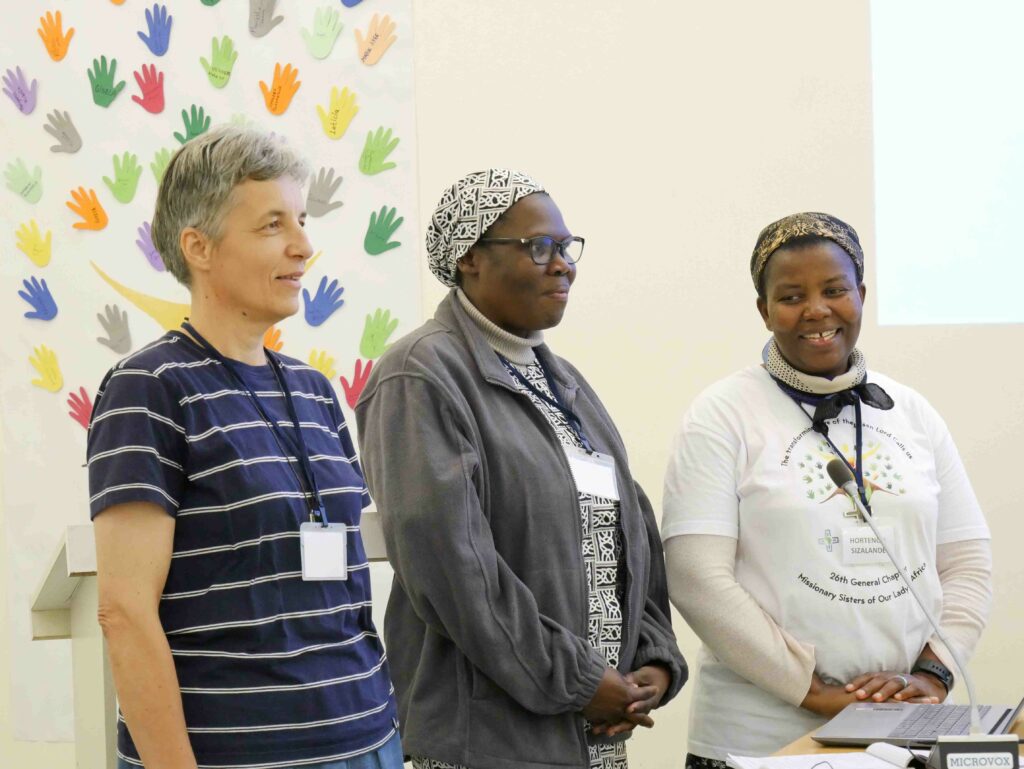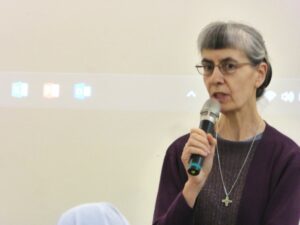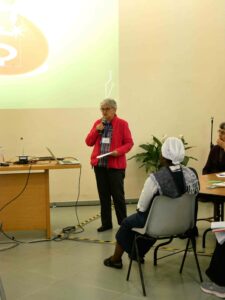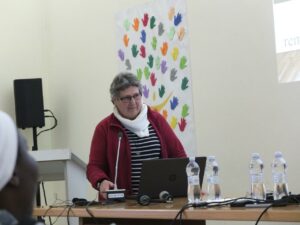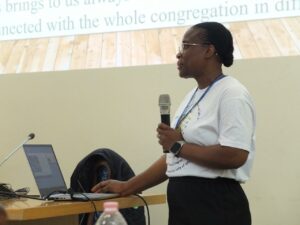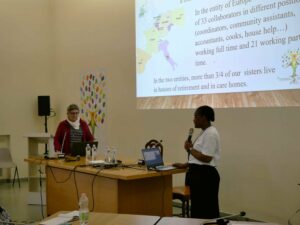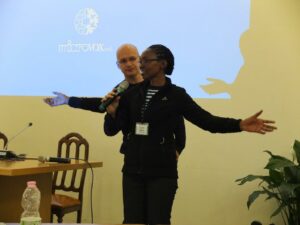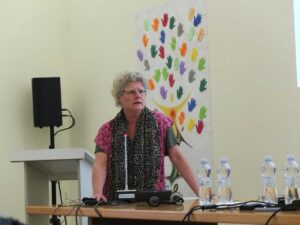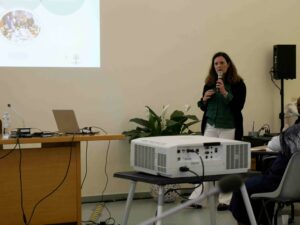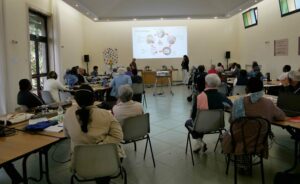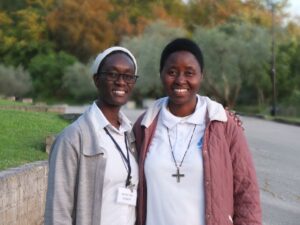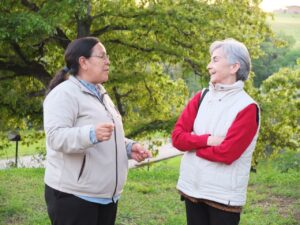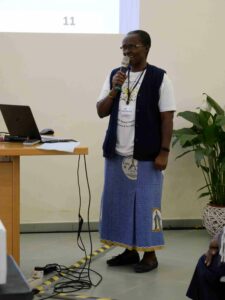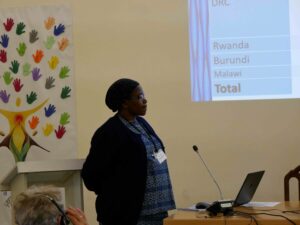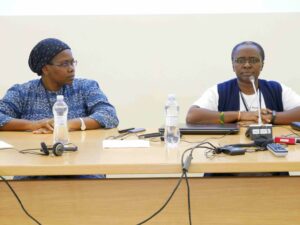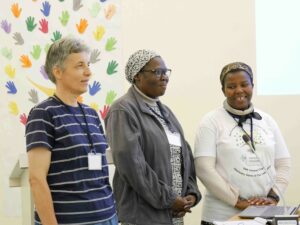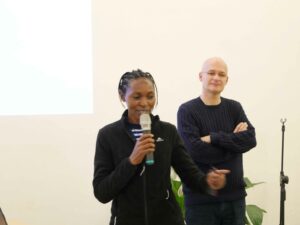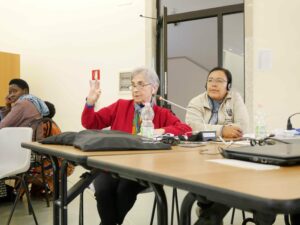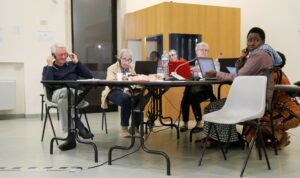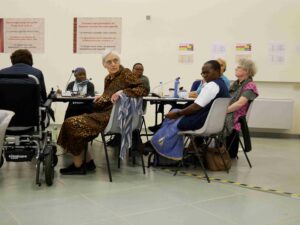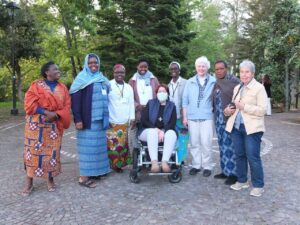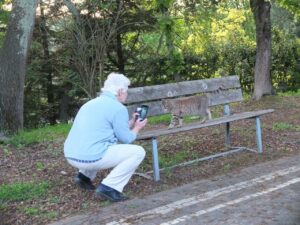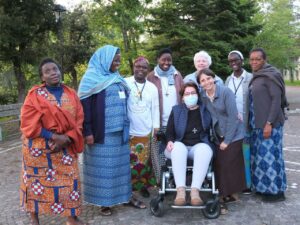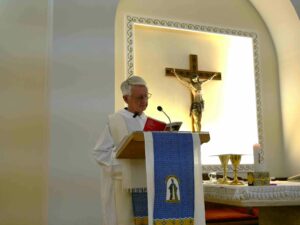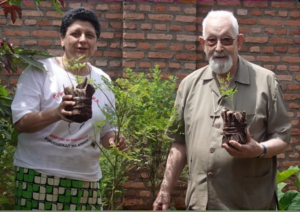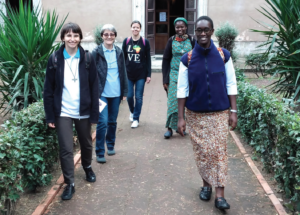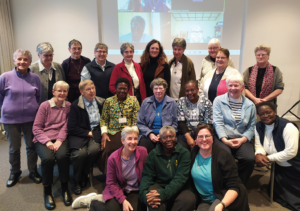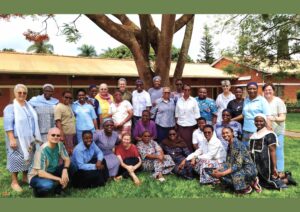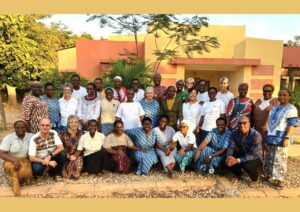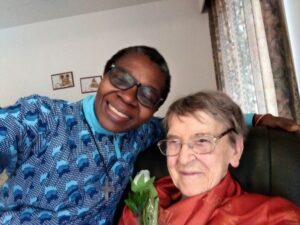The General Chapter is a new beginning, an option for life which contains in itself a potentiality that we must develop, with a view to the transformation of the congregation and each of its members.
On Wednesday we began the day with a sharing on what had touched each one the previous day, Tuesday: the presentation of the General Council report showing the reality of the congregation with its lights and its shadows. Then, we journeyed together into the life of an apostle: Carol, one of our sisters who lives her mission in her village in Spain. She is creating newness in herself and in those she is sent to. We heard the powerful voices of our younger sisters speaking to us. This awakened many feelings and gave us great joy. Our morning prayer was a thanksgiving for that intense time lived together and for all the new life received and given by our sisters throughout our history.
The 4th day was dedicated to the presentation of reports. The financial report provided plenty of information and was a call to live subsidiarity and co-responsibility in our mission and to be responsible for one another. We were shown how the cry of the earth is linked to the cry of the poor. This challenges the unlimited growth that is closely linked to capitalism. The report made us feel grateful and was a call to be aware, developing a greater sense of justice.
The Europe and America report highlighted the commitment of our elderly sisters. Their sense of belonging, their rootedness in the values dear to the MSOLA, their full participation in the life of the congregation. Their fire and their hope stimulate and encourage the sisters in leadership, and those who are still active. They presented the Karlsruhe community, in Germany, at the service of refugees. They accompany refugees and their house is open to refugees from different religions for interfaith events and their kitchen allows refugees to occasionally cook their traditional food.
Two lay coordinators responsible for the Netherlands and Spain represented the lay coordinators of other European and American countries. They presented the report of their respective countries. The presence of lay employees in some countries was very much appreciated and a sister expressed in Luganda, the sisters’ appreciation and gratitude for the presence of lay people: “webale kutuangala” (thanks for helping us).
The report of the Central and East Africa entity highlighted the commitment of the sisters in the Dzaleka Refugee Camp and Tikondane Centre for street children in Malawi; in many places visiting Muslims and people from other Christian churches; the service of the sisters at Tandale, a poor Muslim suburb of Dar-es-Salaam, where they are the only religious and where the dialogue of life is lived in the various services and schools for Muslims and Christians; and the visits to women in situation of prostitution in Wanja wa fishi.
The leaders of the Maghreb and -West Africa entity presented the work of the sisters at the service of refugees and migrants, visiting those in prison; and the dialogue in life between Muslims and Christians in the countries of Maghreb. Planting trees in Mauritania with the help of local people and participating in the Muslim festivals as a sign of appreciation; the commitment to fight human trafficking and work with migrants.
During the homily on the feast of the apostles Phillip and James, Fr. Dave reminded us that being apostles is our identity. We are not only religious sisters; we are missionary sisters. An apostle is someone who has met the risen Lord and bears witness to him. An apostle is a witness to the Good News, not just by what s/he says, but by her/his whole way of being. St. Francis is said to have said to his brothers when he first sent them on mission: “Preach the Gospel at all times; use words when they are necessary.” Apostles give a gospel witness not only by what they do but above all by their way of being. The testimony of our elderly sisters that we heard this morning reminds us of this truth.


